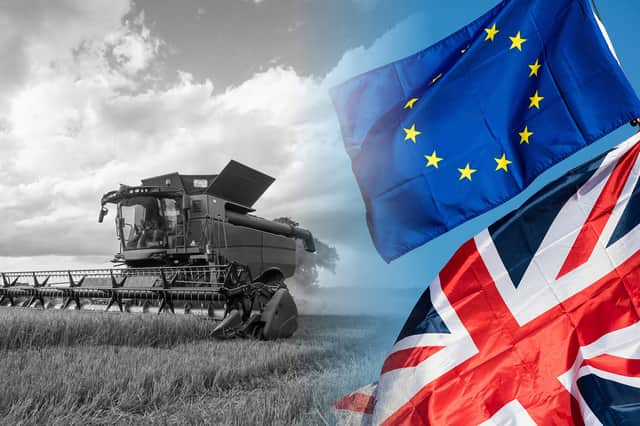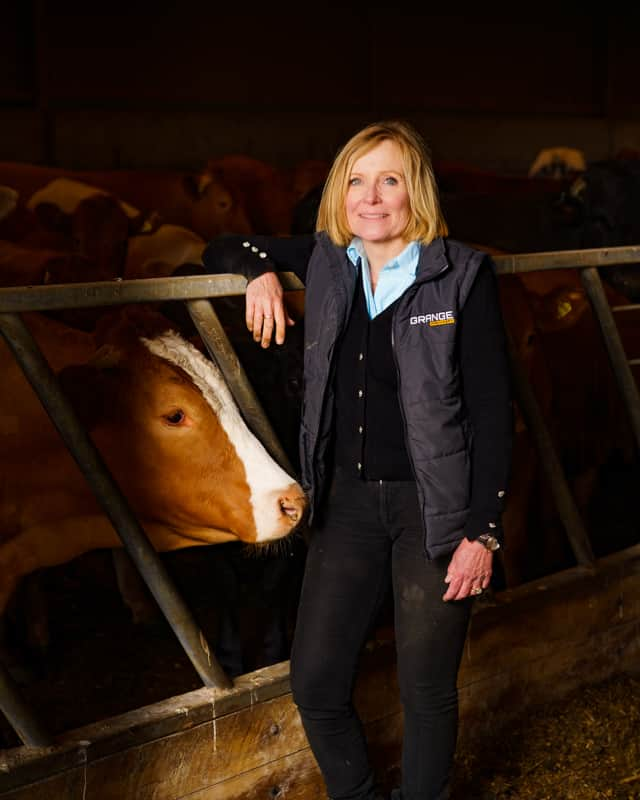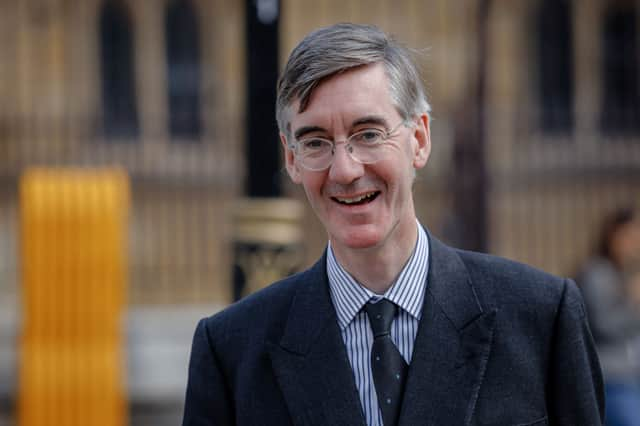Brexit: farmers warn ‘days of cheap food are over’ as EU food check chaos hits UK agriculture
and live on Freeview channel 276
It seems a long time ago that Jacob Rees-Mogg famously predicted that Brexit would cut the cost of food “significantly”.
Since then we’ve seen food inflation hit almost 20%, its highest level since 1977, with some staples jumping by up to 67%. This has largely been driven by steep energy prices, following Russia’s invasion of Ukraine, poor weather conditions and Brexit - which the London School of Economics says has caused a third of food inflation since 2019. Input costs, such as fuel and fertiliser, have also risen significantly, as well as key ingredients such as cereal crops and rapeseed oil.
Advertisement
Hide AdAdvertisement
Hide AdAnd leaving the EU is likely to continue having an impact on food prices as time goes on and more red tape is put in place. While, at the same time, farmers have raised concerns about the UK’s food security - saying the government is not doing enough to support home-grown produce.
Now farmers tell me that “the days of very, very cheap food are over”. Subsidies to help smaller farms stay in business are being taken away, and they are encouraged to take their fields out of production and put them into environmental schemes.
All this means the UK is becoming more reliant on imports. On 9 August, the day on which we would run out of food if we only consumed what we produced within the UK, National Farmers’ Union president Minette Batters warned against becoming “over-reliant on imports when other countries are also facing significant challenges economically and climatically”.


And this week, the government announced it was delaying the post-Brexit EU import checks for the fifth time. The catchily named border target operating model, which the government says will deliver a “world-class border”, is going to be incrementally introduced in 2024 (or so the Cabinet Office says).
Advertisement
Hide AdAdvertisement
Hide AdCurrently, when UK businesses trade animal and plant products with the EU they get hit by post-Brexit red tape, while European firms are still able to export goods without full checks. British farmers say this means they get undercut by EU produce, without having the trade benefits of easy access to the single market.
The government said the reason behind the latest delay was that it was “mindful” it could have an impact on inflation. In other words, adding checks to food imported from the EU would push prices up.


However, Liz Webster, of the pressure group Save British Farming, which is campaigning to rejoin the single market, says she thinks the government is concerned about running out of food.
“That’s why they’ve delayed these food import checks,” she told me. “A, because they’re inflationary, but B, because it will affect supply.
Advertisement
Hide AdAdvertisement
Hide Ad“If they apply checks for EU imports, most EU exporters will give up exporting their much loved produce to the UK. Far from taking back control, we’re opening ourselves up to anybody buying low quality meat at the market.”
While cucumber grower Tony Montalbano told me that his veggies were being undercut by EU produce so much that the distributor he was contracted with didn’t want his entire harvest.
So - as Liz Webster says - the introduction of food checks next year is a Brexit catch 22 for farmers. The ones I’ve spoken to recently want access to the single market and frictionless trade, however they don’t want to be undercut by European produce, and goods from Australia and New Zealand under free trade agreements. And they've currently got the worst of both worlds.
The bottom line is that food prices are likely to continue to go up, be it from EU imports, who from next year will be hit with post-Brexit red tape, or British farmers, who have to pass their costs onto consumers without government support. Olivia Richardson, the NFU’s Next Generation Forum chair, tells me that consumer expectation has outstripped reality.
Advertisement
Hide AdAdvertisement
Hide Ad“Until it starts affecting the consumer directly, which at the moment it is starting to, people are not valuing their food,” she says.


“People have taken it for granted for quite a long time, which as a nation we’ve been very lucky we’ve been able to do so. We’ve got to a point in time where that expectation needs to be revised a little bit.”
Olivia explained that expectations may need to change with products like soya, avocados and strawberries, which people have come to rely on in their weekly shop.
“It was shown earlier this year, we can happily import all we like - but when they have a weather crisis themselves, and that food is scarce and that demand is high, our consumers and our supermarkets aren’t willing to pay the prices of other countries.
Advertisement
Hide AdAdvertisement
Hide Ad“If people are willing to pay more for their food, then farmers and food producers can make investments.”
The government says that the UK has a high degree of food security and a highly resilient supply chain. In the Agriculture Act 2020, the government made a commitment to produce an assessment of our food security at least once every three years.
Farming Minister Mark Spencer recently told me: “I will always back farmers and I pay tribute to their hard work and dedication all year round to put food on our tables.
“I will continue to do all I can to support them - from maintaining the £2.4 billion annual budget to the recent Farm to Fork summit where we announced a package of measures to protect farmers’ interests in future trade deals, boost domestic fruit and vegetable production and deliver new investment in technologies.
Advertisement
Hide AdAdvertisement
Hide Ad“As the Prime Minister made clear at the summit, we are committed to maintaining food production at current levels. Supporting our farmers and food producers remains at the heart of our plans to grow the economy.”
Ultimately though, if the government wants to achieve Jacob Rees-Mogg’s post Brexit idyll, which is currently looking like a mirage, they need to give significant support to the UK’s farmers, otherwise prices will likely continue to go up.
Comment Guidelines
National World encourages reader discussion on our stories. User feedback, insights and back-and-forth exchanges add a rich layer of context to reporting. Please review our Community Guidelines before commenting.
